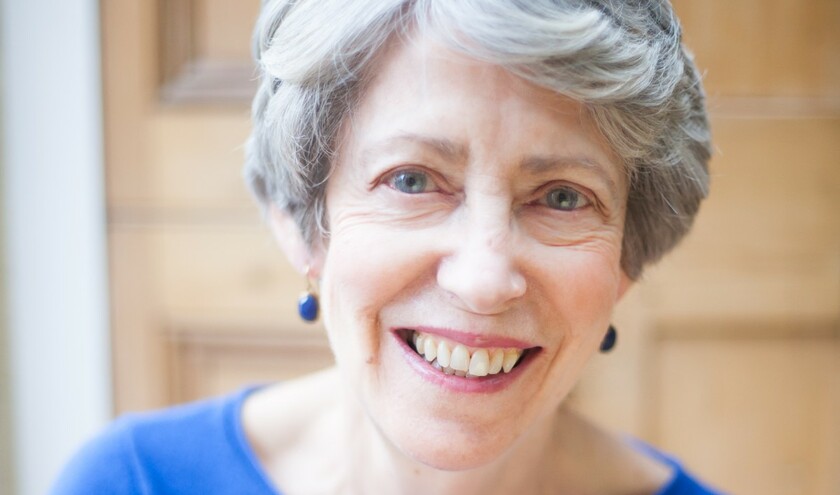Eighteen months after the publication of her review of ICSs, I began by asking the former health secretary what progress she had seen on her recommendations.
‘When I hear our new health secretary Wes Streeting and I read Lord Darzi's report, the diagnosis they are offering is absolutely consistent with my review and really builds on it,' Hewitt told me.
The ICB chair said her review had acted as a ‘catalyst' for a ‘great deal of thinking amongst leaders of ICSs and literally thousands of other people and organisations'.
While acknowledging the controversial nature of some of the health secretary's uncompromising language on the state of the NHS, Hewitt said he was absolutely right to describe the current model of health and care as ‘broken'.
Hewitt also welcomed Streeting's ‘three big shifts' of illness to health, hospital to community and analogue to digital: ‘It summarises my review much more elegantly than I did!,' she laughed.
National care forum
She highlighted her recommendation of a national care forum of integrated care partnerships as one ‘critical' area still to be acted on.
Hewitt said this would give integrated care partnerships a collective voice at national level.
‘You need a national forum bringing together the leaders of those integrated care partnerships so that you have got that voice from the local partnerships feeding into the national deliberations,' she stressed.
Devolution
The former health secretary welcomed Prime Minister Keir Starmer's commitment to English devolution and to working with directly elected mayors of combined authorities regardless of political party as ‘critical if you are going to get the local leadership and the real bottom-up partnerships and working that you need to change the health of the nation'.
I asked Hewitt how the Government could also ensure nationally consistent outcomes were met while developing a devolved ICS-led approach to achieving better health outcomes.
‘There is a lot of discussion going on in policy circles about a single operating model for ICSs,' Hewitt replied.
‘It is blindingly obvious that you cannot have a one size fits all approach. Gloucestershire is completely different from Greater Manchester - and Greater Manchester's ICS is unique because it has healthcare as part of its devolution agreement,' she noted.
The former minister said the diverse nature of ICS regions meant the same outcomes could not always be achieved - partly because problems and relationships are different, partly because local people's needs and priorities vary.
‘You won't always get the same outcomes but we are actually more likely to get the same outcomes if we started by talking about the outcomes we want - including sorting out waiting lists - rather than instructing everyone in massive detail what to do when that may not solve the real, underlying local problem,' she said.
Shift to primary care
Another key question facing the Government in its ‘three shift' agenda is how to move a greater portion of the NHS budget into primary and community care when A&E is in a permanent state of crisis.
Hewitt pointed out Lord Darzi's recommendation here that a shift from acute to primary and community care should be ‘hardwired' over time into the NHS budget.
She stressed the need for a funding mechanism when shifting the proportion of NHS funding going into primary and community care.
Prevention
In her April 2023 review, the former health secretary called for prevention funding to be increased by at least 1% of the NHS budget but highlighted that there was not even currently a standard definition of what prevention is.
She also highlighted that none of the key partners, including the NHS, social care, primary care, community health and mental health had a financial incentive to keep people out of hospital.
Hewitt highlighted the example of tax-funded population-based budgets in the US where Medicare Advantage in Florida, for example, holds the entire publicly-funded health budget for older people, runs the hospitals and employs primary care, community care and occupational health professionals.
‘Because of the funding structure they know that unless they look after their residents and keep them out of hospital where possible they will go bust,' Hewitt said. ‘They get far better outcomes - and patients and staff love it.'
The former health secretary said ICBs and ICSs provided the framework to tackle the system-wide issues we face in the UK going forward.
10-Year Plan
Looking forward to the Government's 10-Year Plan, Hewitt noted Lord Darzi's observation that the future was already happening all over the NHS.
‘I am so pleased when I hear Wes Streeting say that the 10-Year Plan will tap into and build up from all those brilliant examples around the country of the future and that includes the quite extraordinary work that is now being done to genome test 100,000 new babies,' Hewitt noted.
It is through building on the best of what is already happening in the NHS in prevention, early intervention and establishing broader partnerships that we can take healthcare towards a brighter future.
If you would like to appear in The Big Interview email Lee Peart at l.peart@hgluk.com



